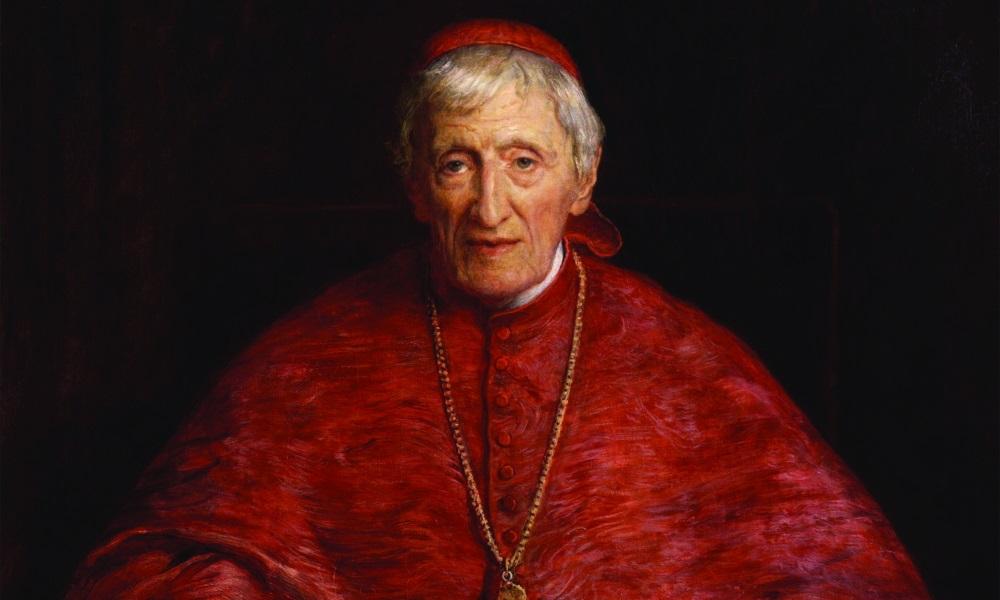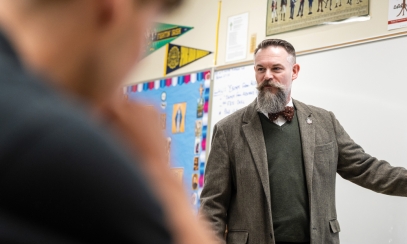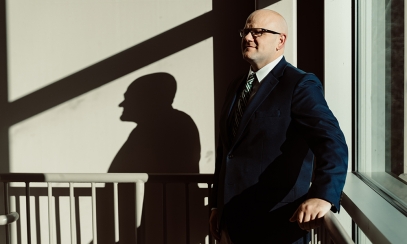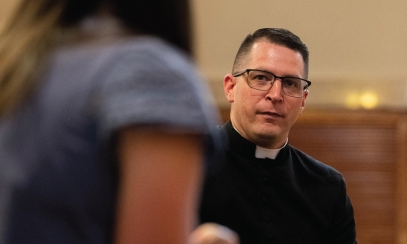
Namesake of Catholic university centers, John Henry Newman, to be canonized this month
An influential teacher and distinguished theologian, Blessed John Henry Newman remains as insightful and relevant today as he was during his own lifetime. Newman is alive in the works that he has left behind; and thanks to his many writings and coming sainthood, we can consider him a wise friend and guide on our own life journey.
In theology, philosophy, education and literature, Newman has bestowed an abundance of riches on the Church and the world. It is because of these works and academic zeal in his faith that Newman has become the namesake of Catholic centers on college campuses. In the Diocese of Spokane there are two Newman Centers – one at Eastern Washington University, Cheney, and another at Washington State University in Pullman.
On Oct. 13, Newman will be canonized by Pope Francis in Rome.
John Henry Newman was born in 1801 and, at age 15, was sent to boarding school, where an Anglican priest was put in charge of him. There, Newman had a conversion of heart and realized God is not the result of brainwork and studies but synonymous with encounter and personal commitment. These were just the beginnings of Newman’s reflections and insights into faith. In 1817, Newman traveled to the University of Oxford to study. In 1825, he became an Anglican priest. He spent the next 27 years at Oxford as a student, academic, theologian, and pastor.
A crucial experience for Newman was an illness he contracted in Sicily. During his recovery, he wrote his most famous poem, “Lead Kindly Light,” which speaks about the Light of Christ. According to Newman, letting the Light of Christ be the lead of our life is a result of conscience. The decisions we make will inevitably influence the way we think. The judgments we make will shape our whole view of the world. For Newman, following conscience was always, in a sense, directed outwards toward the other. It is a call to responsibility and love for another. With this understanding of faith and education, he became critical of both the evangelical emphasis on dramatic personal conversion and the merely academic or intellectual Christianity common at Oxford. He quarreled with the headmaster who wanted students to be treated as purely academics. Newman maintained they must be taught and cared for as “whole persons.” His belief in the need for critical thinking and prayerful devotion led Newman to promote the idea of “via media,” or a middle way between Protestantism and Catholicism. In an attempt to bridge the gap between the two faiths, he argued that 39 of the articles of the Anglican Church were, in fact, Catholic teaching. But when he offered this new interpretation, as well as the belief that insights grow slowly and not in sudden epiphanies, he faced intense opposition from the Anglican denomination and had to resign from Oxford.
Newman’s academic experiences led him to believe that universities are a place to prepare people for the world, not hide them away from it. “It is a place to fit men of the world for the world. We cannot possibly keep them from plunging into the world with all its ways and principles and maxims when the time comes. But we can prepare them against what is inevitable.” (The Idea of a University, John Henry Newman)
This is the legacy of Cardinal Newman: the desire to empower the laity through knowledge. We cannot shield people from everything in the world. We must prepare people for what they will encounter so they can correctly discern right from wrong.
With Newman’s vast insights into academics, education, and teaching the “whole person,” it is easy to see why he is the namesake of Catholic outreach and faith centers on public campuses. Newman Centers are residences and Catholic ministry centers at non-Catholic universities throughout the world. These centers provide pastoral services and ministries to the universities’ Catholic communities. We are inspired by and agree with Newman’s beliefs on education and strive to make young men and women holy sons and daughters of God, alive in the Spirit and passionate and knowledgeable about their faith.
Newman Centers are a place to prepare people for the world so they can be of the world, but not live for it. We help college students to think about and learn about how to live a life beyond self, a life for God, a life committed to love. This is the life, works and legacy of soon-to-be St. John Newman. It is the wisdom and holy example of this man that has touched the hearts and minds of many young men and women and led to many experiences of conversion. Newman Centers today carry on the vision of Cardinal Newman and help teach and prepare a laity that is of the world, but not for the world, wanting nothing more than to respond to the call of love, evangelize on campuses, and discern and boldly live out their God-given vocations.
Newman Centers in the Diocese of Spokane
WSU Newman Center
- 1913 Newman Club at Sacred Heart Parish is founded by Father Carl Phillipp.
- 1962 Father James Kuhns refounds the club as an independent ministry with support of the diocese. The Greystone Church is purchased for use as the student parish.
- 1980 The current St. Thomas More Catholic Student Center and Parish is dedicated.
Father Jeffrey Core is the pastor of St. Thomas More Student Center
To learn more: www.catholiccougs.org
EWU Newman Center
- 1930s Newman Club is founded at St. Rose of Lima Parish in Cheney by Father John Blake.
- 1975 The center moves to its current location at 837 Elm St. in Cheney, Washington.
Father Paul Heric is the director of the Catholic Newman Center at EWU
To learn more: www.ewucatholics.org



